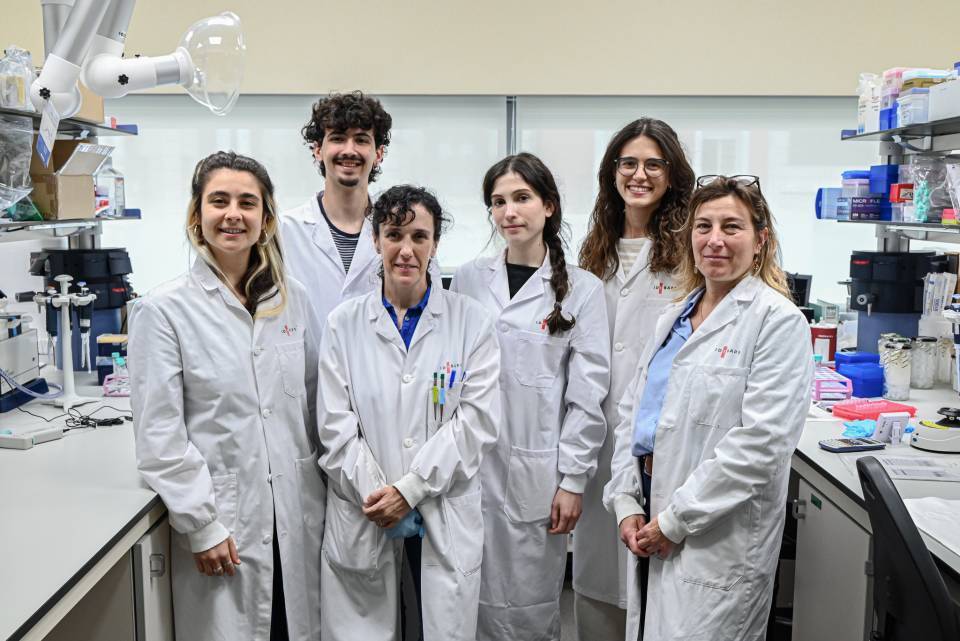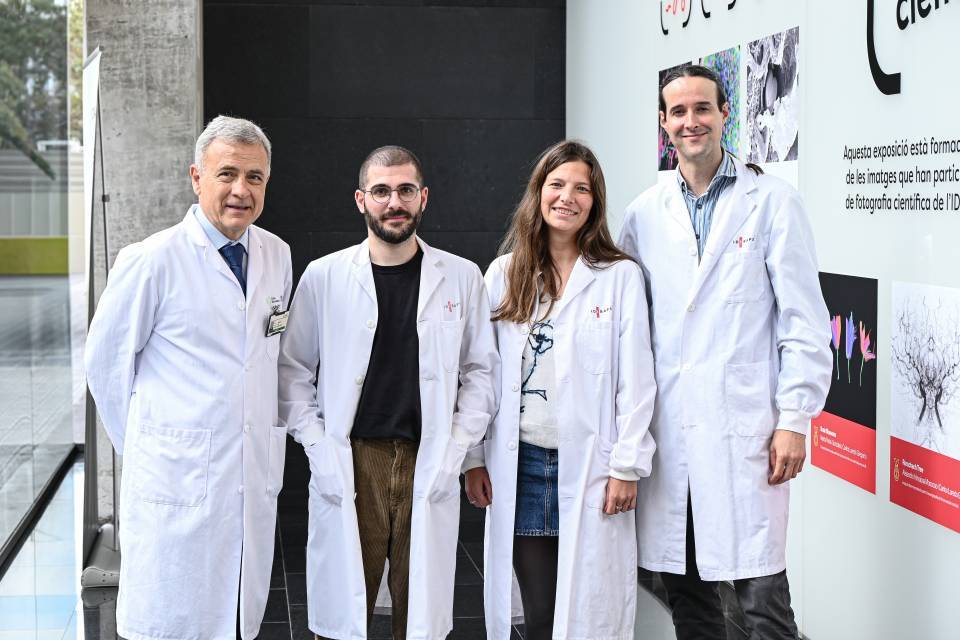A recent study published in the Blood Cancer Journal revealed a key mechanism that contributes to the progression and resistance of mantle cell lymphoma (MCL), one of the most aggressive, and still incurable, types of lymphoma. The research was led by Virginia Amador, head of the IDIBAPS Functional characterization of oncogenic mechanisms in lymphomagenesis research group, located at the Esther Koplowitz Centre.
Mantle cell lymphoma is a B-cell lymphoma that, despite therapeutic advances, continues to present a high rate of relapse and resistance to treatment.
A molecular alliance that drives tumour growth
The research team focused on the study of a particular protein, the transcription factor SOX11, which is overexpressed in 90% of the aggressive MCL cases, but absent in the indolent ones.
The study analysed the SOX11 “interactome”, in other words the set of proteins with which it interacts, using advanced proteomic techniques. Of the 92 proteins identified, SMARCA4 was particularly prominent. It plays a fundamental role in the regulation of gene expression.
“The interaction between SOX11 and SMARCA4 is like an alliance that gives the tumour strength to grow and resist treatment,” explains Virginia Amador. “Understanding this link has allowed us to identify a vulnerability that we can exploit therapeutically.”
One of the study’s most promising developments is the use of PROTAC molecules, an emerging technology that allows for the selective degradation of target proteins. In this case, the targeted degradation of SMARCA4 reduces the ability of SOX11 to bind to the DNA and activate tumour genes. This leads to a decrease in oncogenic signalling, overcomes resistance to drugs such as ibrutinib and causes tumour cell death.
“This is the first time that it has been shown that inhibiting the interaction between SOX11 and SMARCA4 can reduce the oncogenic activity of lymphoma,” says Amador. “This discovery opens up a new therapeutic avenue for patients with aggressive MCL, who until now had few options.”
Implications for patients and the scientific community
For patients, especially those with SOX11-positive tumours, the results of the study offer the hope of more effective and selective treatments with fewer side effects. For the researchers, the study provides valuable preclinical data on the potential of PROTACs as a therapeutic tool and opens the door to exploring other relevant molecular interactions.
Moreover, the data generated have been made available in public repositories such as the Gene Expression Omnibus (GEO), and the experimental models developed may serve as a basis for future preclinical studies.
Forthcoming lines of research
The IDIBAPS team is already working on three lines of research derived from this study: to identify other proteins that interact with SOX11, to study the SMARCA4 mutations that affect its interaction with SOX11, and to develop new PROTACs that specifically target this molecular complex.
The study was led by Virginia Amador’s group at IDIBAPS and involved the collaboration of clinical teams from the Hospital Clínic de Barcelona and basic researchers from VHIO and UAB.




